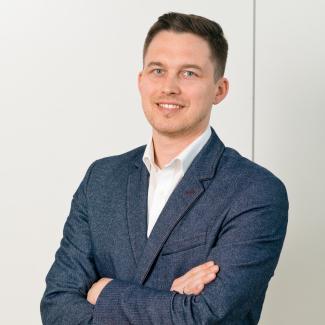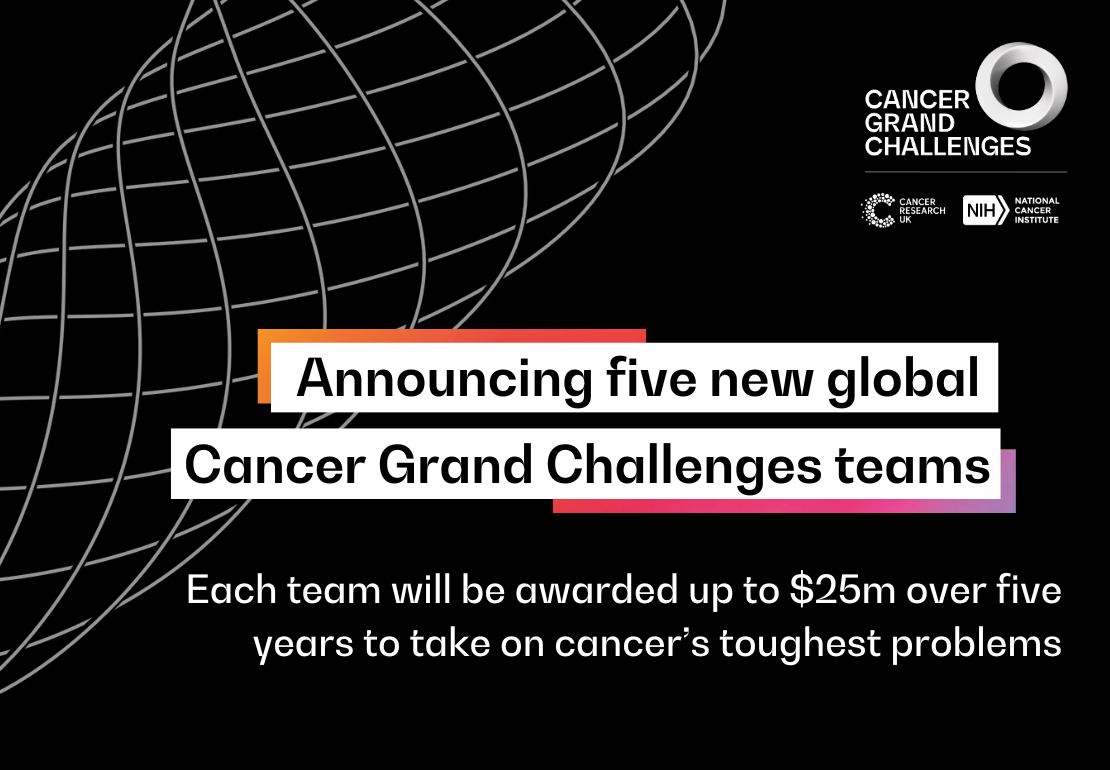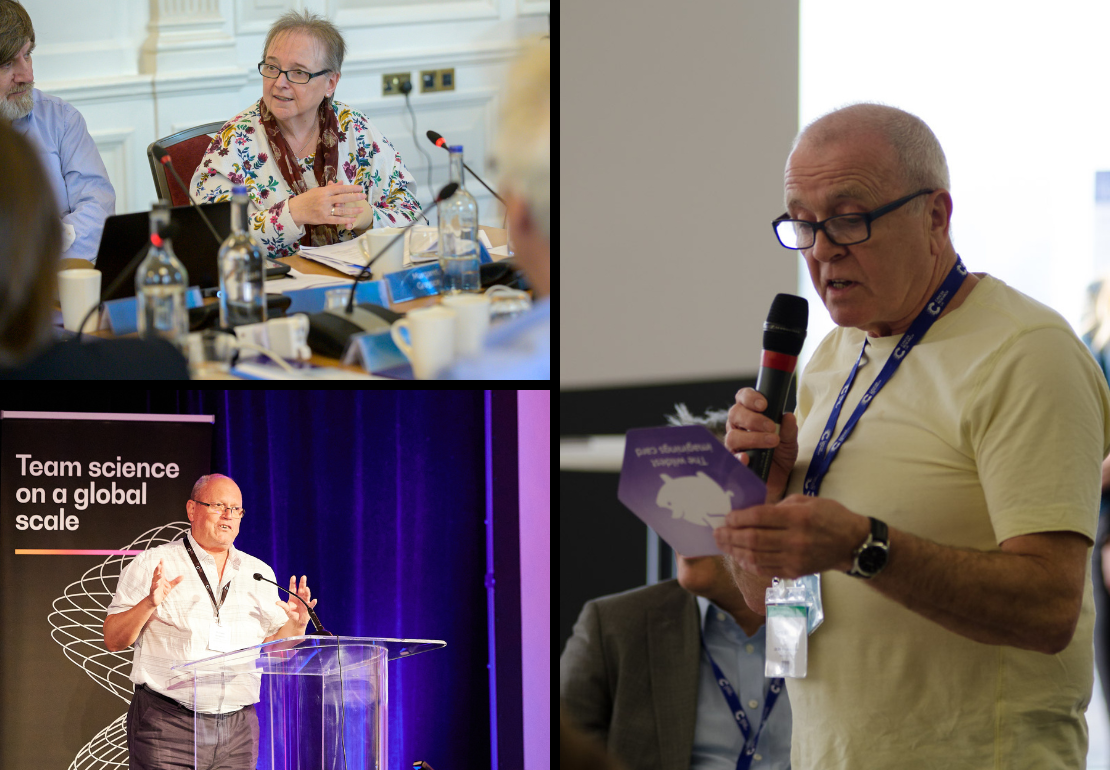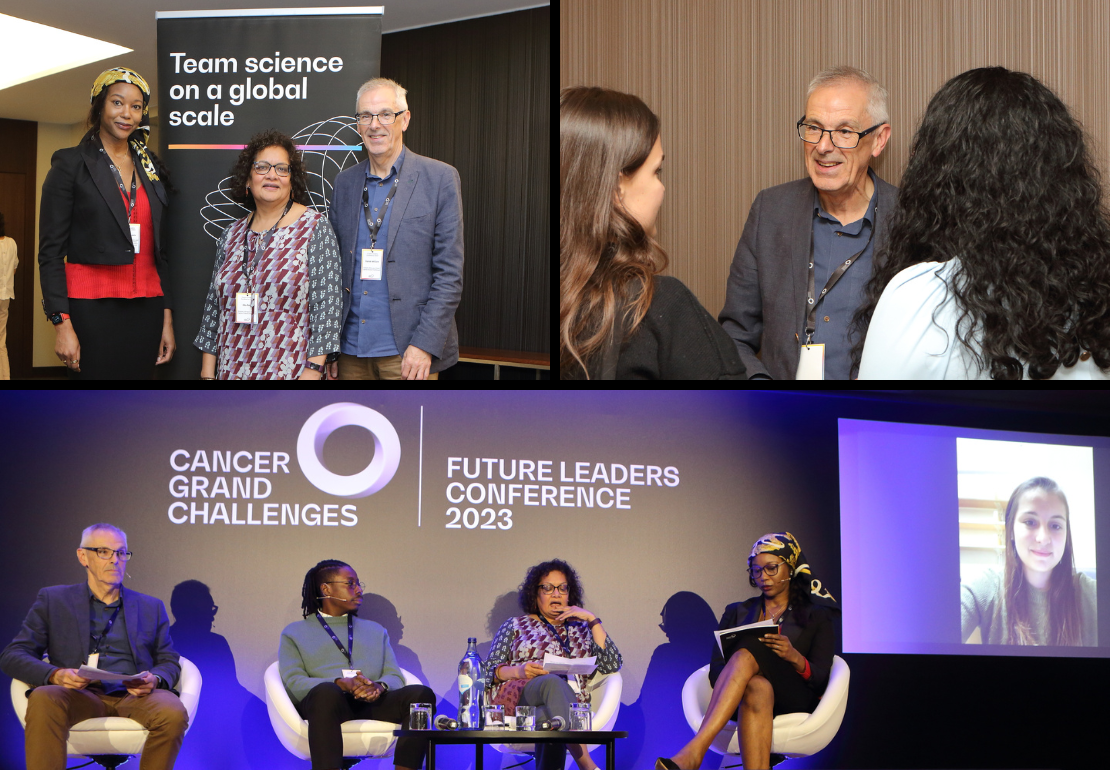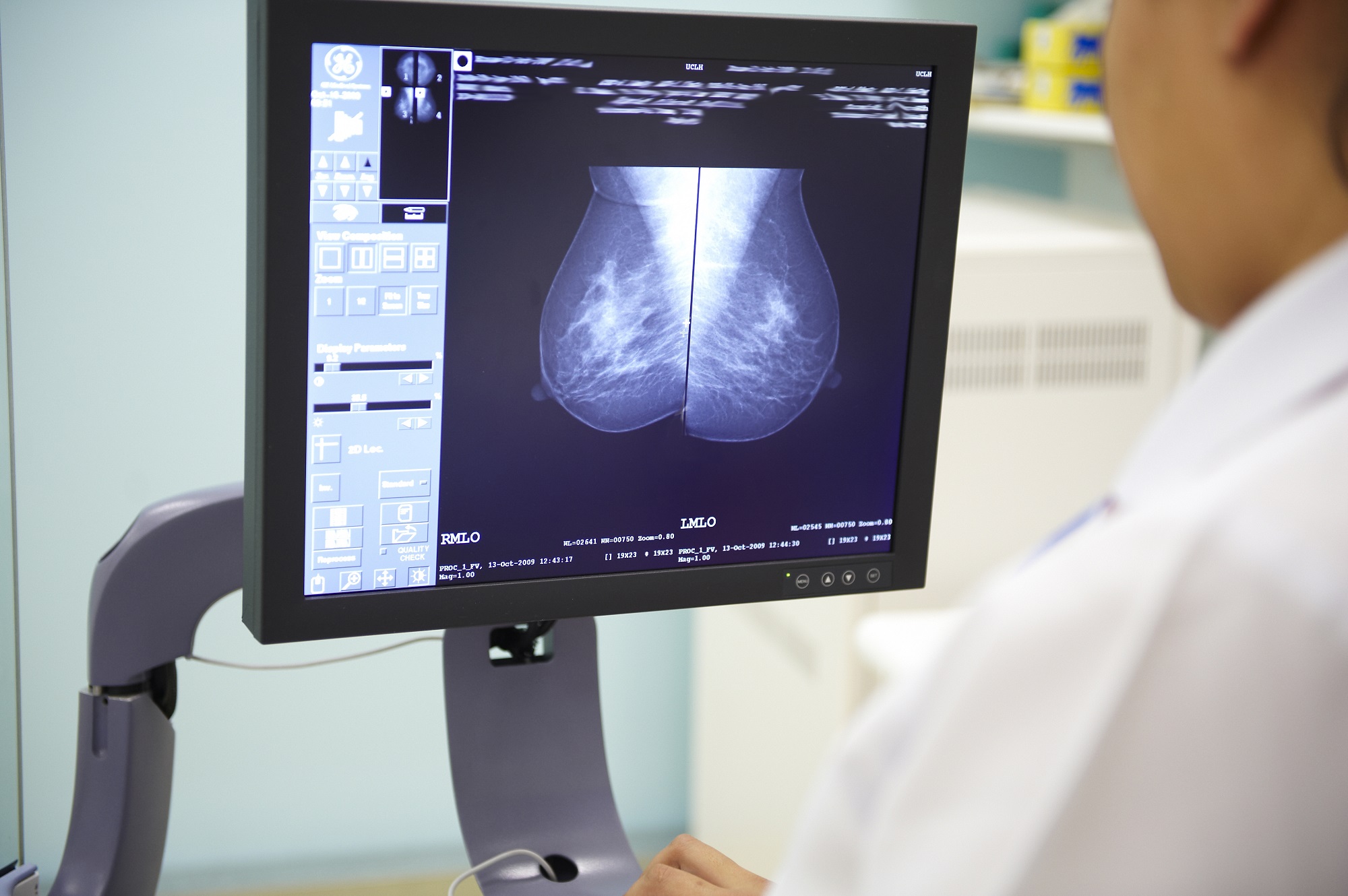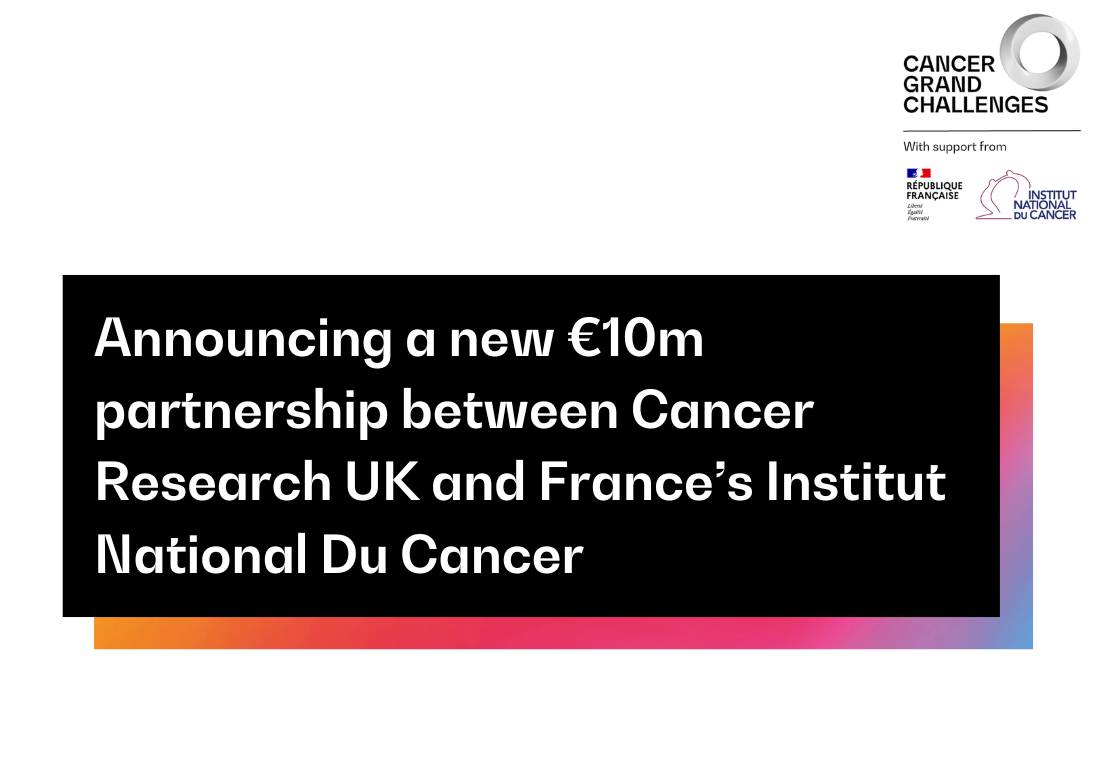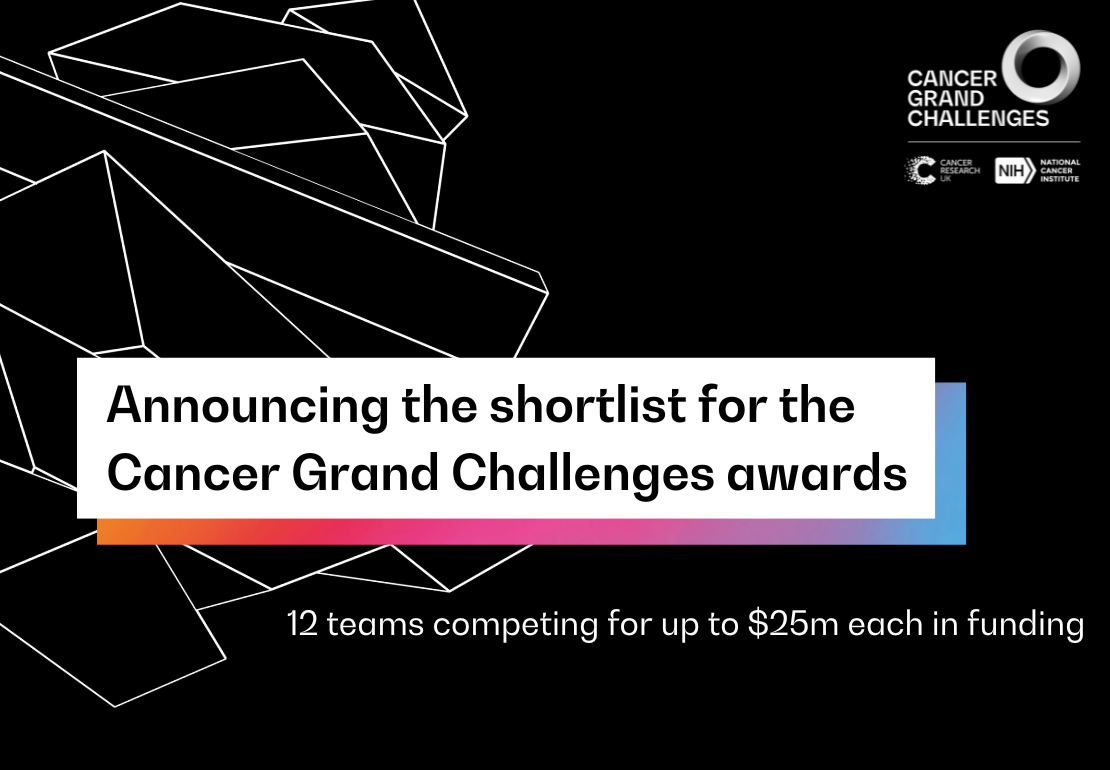KOODAC
Develop therapeutics to target oncogenic drivers of solid tumours in children

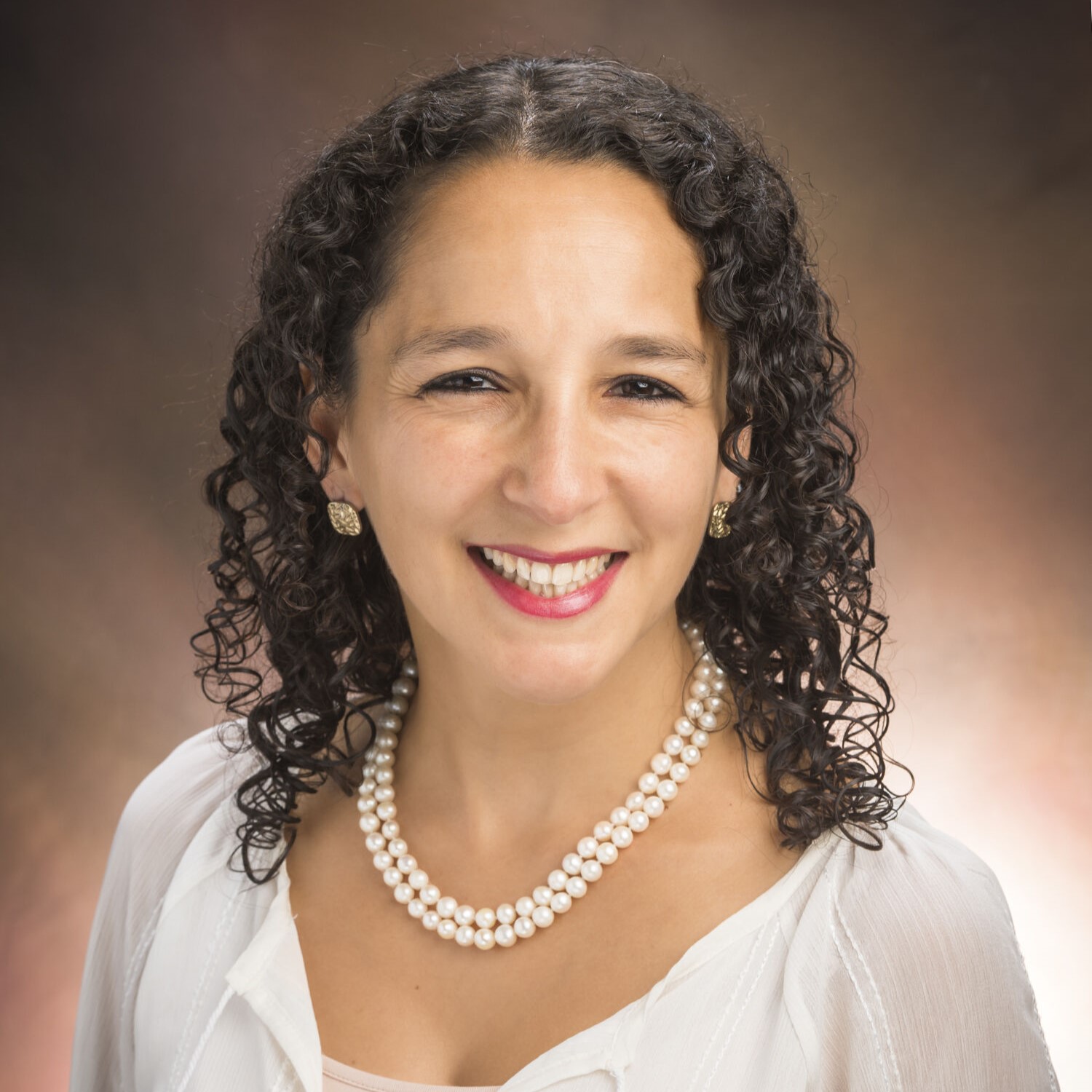
Professor Yaël Mossé, Co-team Lead
Patricia Brophy Professor of Pediatric Oncology
Children’s Hospital of Philadelphia
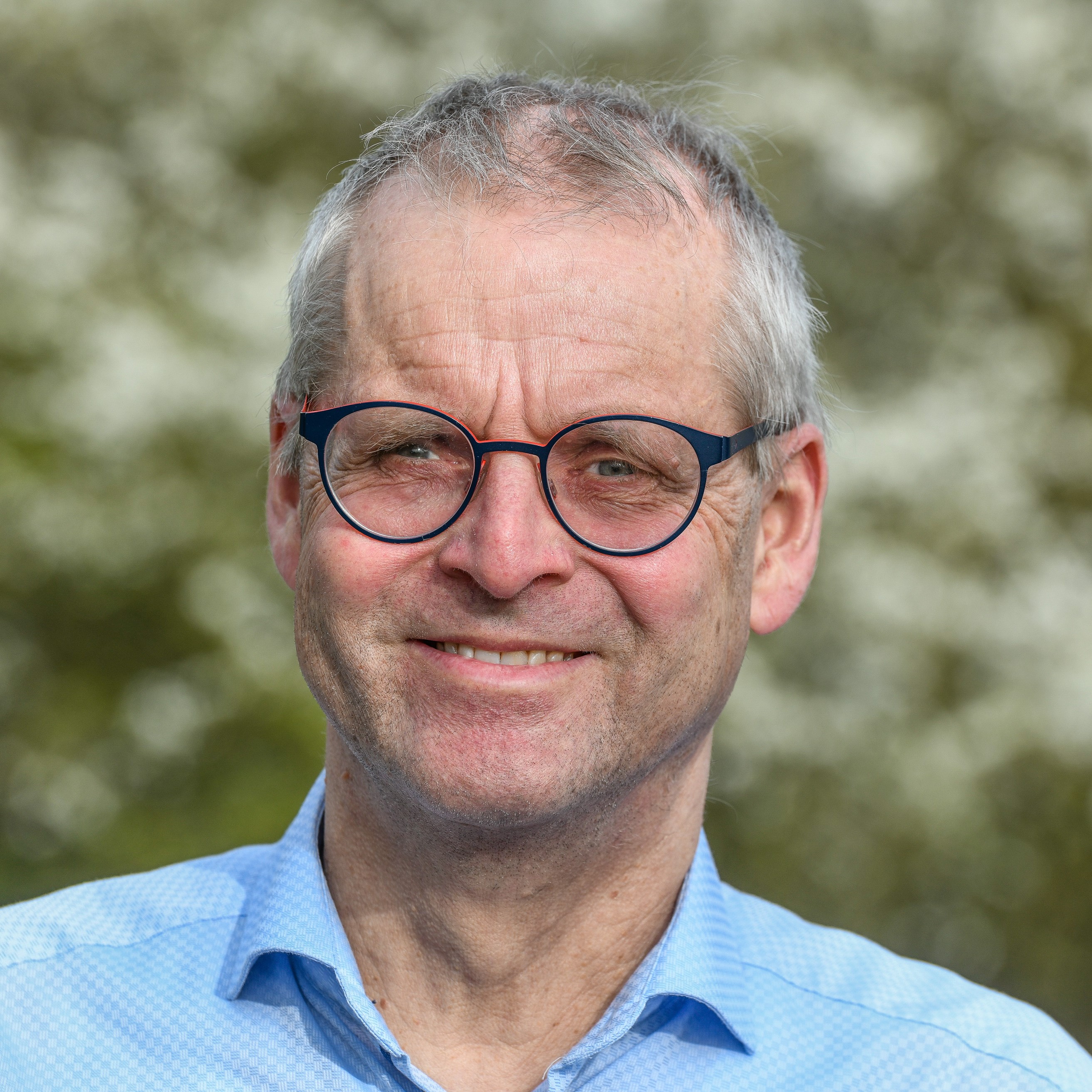
Professor Martin Eilers, Co-team Lead
Professor of Biochemistry and Molecular Biology
University of Würzburg
INSTITUTIONS
10
LOCATIONS
Austria, France, Germany, UK, US
FUNDED BY
Cancer Research UK, Institut National Du Cancer (INCa), KiKa (Children Cancer Free Foundation)
SPECIALISMS
structural biology, chemical biology, paediatric oncology, medicinal chemistry
Developing a suite of oncoprotein degraders for childhood solid cancers
Funded by:
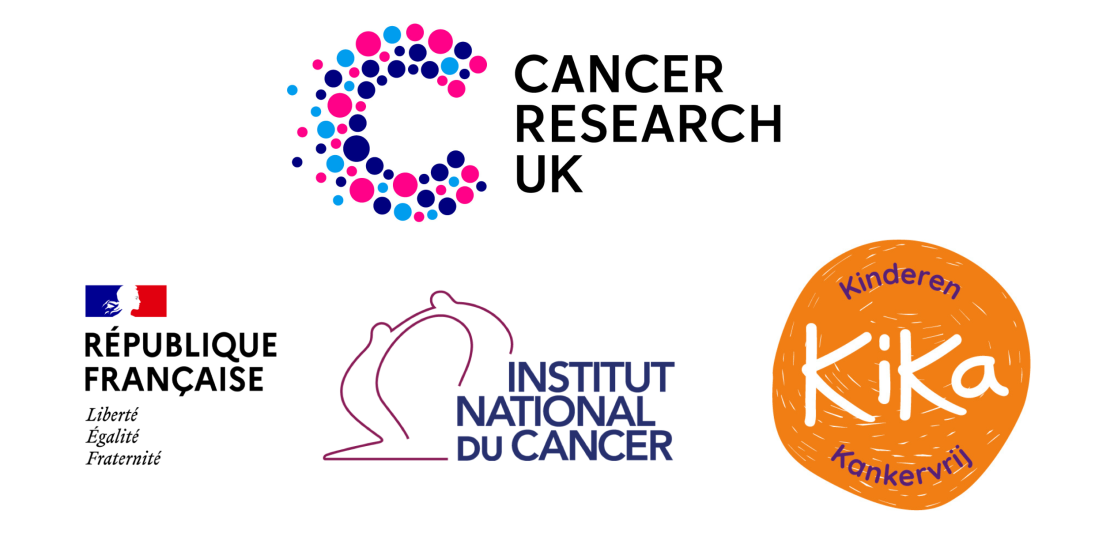
KOODAC will harness the technologies of targeted protein degradation to target the oncoproteins that drive high-risk childhood solid tumours, with the aim of developing orally bioavailable drugs that will dramatically improve cure rates for children affected by these cancers.
Cancer remains a leading cause of death by disease in children globally, and progress in the treatment of children with solid tumours has largely stalled. The standard of care for these cancers often relies on decades-old cytotoxic agents and radiotherapy, which can lead to life-threatening toxicities.
Although the major genetic drivers of childhood cancers have been identified, the proteins encoded by these genes (oncoproteins) have been considered largely undruggable. The oncoprotein drivers of childhood solid tumours are often transcription factors and, with conventional pharmacology, no molecules have been identified that can successfully inhibit their function.
KOODAC aims to take five key oncoproteins from undruggable to ‘degradable’ with a new generation of compounds called targeted protein degraders that do not inhibit the target protein, but instead degrade it. The team’s overarching aim is to deliver transformative new therapies that can cross the blood-brain barrier and be deployed worldwide for children with solid tumours that are driven by these oncoproteins.
Tackling the Solid Tumours in Children challenge
As part of its programme, KOODAC aims to:
Target five oncoproteins that drive high-risk paediatric cancers
The team will focus on developing degraders for the ALK, DNAJB1::PRKACA, MYCN, EWSR1::FLI1 and PAX3::FOXO1 (or PAX7::FOXO1) oncoproteins, which have been implicated in the development and/or spread of neuroblastoma, fibrolamellar hepatocellular carcinoma, medulloblastoma, Ewings sarcoma and fusion positive rhabdomyosarcoma, respectively.
By interrogating the underlying biology of these oncoproteins and understanding how protein degraders act on them, the team will uncover novel insights that could apply to areas beyond the selected paediatric cancers in the future.
Discover and develop two types of degraders
KOODAC will develop two types of degraders – proteolysis targeting chimeras (PROTACs) and molecular glue degraders (MGDs). Both classes of degraders utilise the cellular ubiquitin-proteasome system, which marks proteins for degradation and leads to cell death.
The team will develop a platform for the discovery, characterisation and development of degraders for the oncoproteins of interest. Compounds that show promise will enter an optimisation pipeline designed to produce orally bioavailable degraders that can be evaluated in the clinic.
Conduct clinical studies
For any promising drug(s) that may emerge from its research, KOODAC will conduct the preclinical studies necessary to enable biomarker-driven clinical trials after the programme is completed. The team aims to develop a framework to deliver phase I clinical studies for evaluation of drug safety and activity.
By uniting diverse expertise, KOODAC’s vision is to create a new standard of care for children with oncoprotein-driven cancers that that will change the paradigm of paediatric cancer therapy. The team’s patient advocates will work closely with the researchers to advance groundbreaking science and facilitate the clinical utilisation of protein degraders globally.
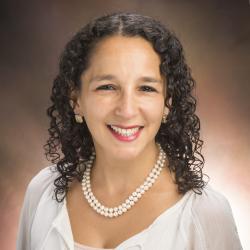
Professor Yaël Mossé, Co-team Lead
Patricia Brophy Professor of Pediatric Oncology
The Cancer Grand Challenges approach has enabled us to bring together people with very different scientific backgrounds and divergent technological know-how to focus on one overarching question. We feel the responsibility and an urgency to bring better therapies to children with cancer.
Plain language summary
Cancer is caused by errors in a cell’s DNA (the instructions inside a cell that tell the cell what to do). These errors are called mutations, and they can cause cells to produce proteins that aren’t typically found in the cell, known as oncoproteins.
Oncoproteins can be targeted with drugs to treat cancer, but it’s been difficult to find drugs that can target the oncoproteins in childhood cancers. Team KOODAC will address this problem with a ground-breaking technology called ‘target protein degradation’ and a new generation of drugs called ‘degraders’.
Degraders can specifically remove oncoproteins from cancer cells via the cell’s existing ‘waste disposal’ system, which dissolves the faulty protein and leads to cancer cell death. Due to their precise targeting of oncoproteins and not normal proteins, degraders are theoretically not toxic, and, unlike many other drugs, they can cross the blood-brain barrier to treat brain tumours. Degraders can also be made available in either a tablet or liquid form, making it easier to distribute them across the world.
Team KOODAC brings together an interdisciplinary, international team of scientific experts, patient representatives and a committed industry partner, all sharing the vision of developing safe and effective drugs against the previously undruggable oncoproteins of five childhood cancers: neuroblastoma, fibrolamellar hepatocellular carcinoma, medulloblastoma, Ewings Sarcoma and rhabdomyosarcoma.
Martin Eilers has been Professor of Biochemistry at the University of Würzburg, Germany, since 2009, having previously held faculty positions in Marburg. Martin has been interested in the biology of MYC proteins since his postdoctoral work with Michael Bishop at UCSF. The work in his laboratory focuses on the molecular mechanisms by which these proteins promote tumour development. He has made major contributions to the understanding of how MYC proteins are controlled by the cellular ubiquitin system. His recent work has uncovered critical and unexpected functions of MYC proteins in maintaining the genomic stability of tumour cells and in coordinating transcription with DNA replication, and shown how these can be exploited for new therapeutic approaches. These findings form the basis of his work in the KOODAC team, where he and his colleagues will now try to find drugs that redirect the ubiquitin system to degrade the MYCN oncoprotein, a member of the MYC family of proteins that drives the development of aggressive childhood tumours such as neuroblastoma
Organisation
University of Würzburg
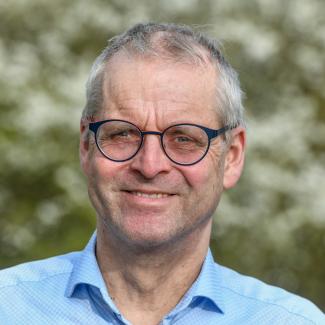
Dr. Mossé is a tenured Professor at The Children's Hospital of Philadelphia and the Perelman School of Medicine of the University of Pennsylvania. She is a physician-scientist who has focused for two+ decades on the childhood cancer neuroblastoma with the dual goals of improving patient outcomes and using the disease as a model to understand cancer in general. She received her M.D. from the Sackler School of Medicine, Tel Aviv, Israel, in 1997, joining the Children's Hospital residency program that year, followed by fellowship training at the same hospital starting in 2000.
One unique aspect of her work is the translational nature that seamlessly straddles the laboratory and the clinic. Her seminal discovery of gain-of-function mutations within the tyrosine kinase domain of the Anaplastic Lymphoma Kinase (ALK) gene as the major cause of hereditary neuroblastoma, and the demonstration that these same alterations are the most common somatic single nucleotide mutations in the sporadic forms of the disease have positioned ALK is the only mutated oncogene tractable for targeted therapy in NB. ALK inhibition therapy has now moved upfront in the currently enrolling COG Phase 3 clinical trial for patients with newly diagnosed high-risk neuroblastoma, initially with crizotinib, but more recently with lorlatinib as the ALK inhibitor of choice.
In parallel, her lab is developing newer and more precise strategies for targeting ALK as she learns from patients about de novo and acquired resistance, including the development of immunotherapeutic strategies to target cell surface ALK, which is expressed on most neuroblastomas and select other pediatric and adult cancers.
Organisation
The Children’s Hospital of Philadelphia
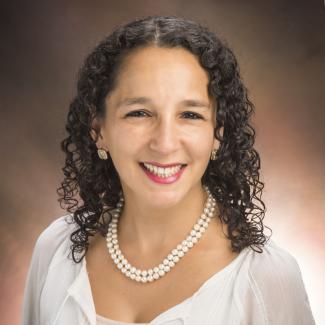
Dr Alessio Ciulli holds the Personal Chair of Chemical Structural Biology at the School of Life Sciences, University of Dundee. He is also the Founder and Director of Dundee’s Centre for Targeted Protein Degradation (CeTPD). Dr Alessio’s laboratory has made significant contributions to the development of proteolysis-targeting chimeric molecules (PROTACs) as a viable strategy for targeted protein degradation. Amongst his most significant discoveries are the fragment-based design of ligands for the E3 ligase von Hippel-Lindau (VHL), and their use to design one of the first VHL-based PROTACs: the BET degrader MZ1. Alessio’s Llab later illuminated fundamental insights into PROTACs’ mechanism of action, solving the first crystal structure of a PROTAC ternary complex. Alessio is the scientific founder of Amphista therapeutics, a company that develops new protein degradation platforms. Before joining Dundee, Alessio was a group leader at the University of Cambridge, where he previously earned his PhD degree. Amongst his honours are the EFMC Prize for Young Medicinal Chemist in Academia, the RSC Capps Green Zomaya Award in medicinal computational chemistry, and election as Fellow of the Royal Society of Chemistry.
Organisation
University of Dundee
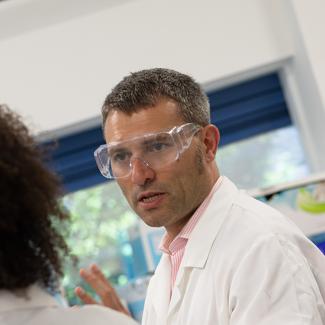
Dr. Olivier Delattre (male) is MD-PhD, trained in pediatric oncology. He heads the Genetic and Biology of Cancer department at Institut Curie. He is also leading the SIREDO Pediatric Center at Institut Curie which gathers clinicians and scientists to accelerate the development of new therapeutic strategies for pediatric cancers. His lab identified some key genetic abnormalities in Ewing sarcoma, rhabdoid tumors, neuroblastoma as well as in several sarcoma. His lab investigates the functional consequences of these alterations in tumor development and has established animal models. His current fields of interest are the study of genetic alterations associated with pediatric cancers, the study of the pediatric cancer cells-of-origin and the investigation of mechanisms of phenotypic plasticity. Dr Delattre has published more than 400 manuscripts with an H-index of 102. rHe has received numerous awards including the ARC Leopold Griffuel award in 2016, the Inserm Grand Prix in 2022 and the AACR-St. Baldrick’s Foundation Award for Outstanding Achievement in Pediatric Cancer Research in 2023. He is an elected member of EMBO.
Organisation
Institut Curie
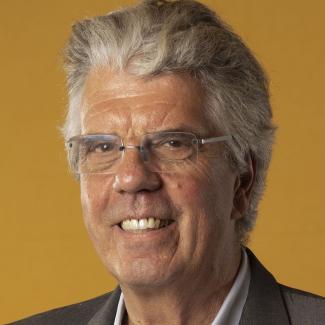
Gwenn M. Hansen, Ph.D. has served as Chief Scientific Officer of Nurix since June 2020 and served as the company’s Senior Vice President, Research from July 2019 through May 2020. Since joining Nurix in 2015, Gwenn has focused on establishing the company’s DNA encoded library technology platform for small molecule discovery in addition to leading the discovery organization. Prior to joining Nurix, Gwenn was an Associate Professor in the Center for Drug Discovery at Baylor College of Medicine and served in a variety of discovery-focused roles at Lexicon Pharmaceuticals. Dr. Hansen holds a B.A. in Biology from Gustavus Adolphus College and a Ph.D. in Biomedical Sciences from the University of Tennessee-Knoxville.
Organisation
Nurix Therapeutics
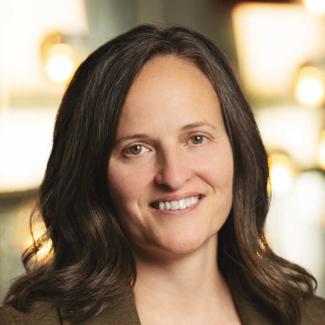
Dr Charles Keller is Scientific Director of the Children’s Cancer Therapy Development Institute. His research focuses on the development of more effective, less toxic therapies for childhood cancers. Charles’ special interest is advanced disease that has spread beyond the initial location of the cancer or which makes the tumour unresectable. He has co-chaired the brain tumor developmental therapeutics committee (CNS-DVL) of the Children’s Oncology Group and is a member of the soft tissue sarcoma (STS) committee of Children’s Oncology Group. Charles has also regularly been a standing or ad hoc member of NIH/NCI Study Sections.Charles attended Tulane University where he received a degree in Biomedical Engineering prior to attending Baylor College of Medicine where he received his M.D. degree. After completing his internship and residency in Pediatrics at Texas Children’s Hospital, Charles trained in paediatric haematology-oncology at the University of Utah and with 2007 Nobel laureate, Mario Capecchi. Charles has authored over 140 scientific publications and is a recognised expert in the biology of childhood sarcomas and the preclinical investigation of childhood cancers. Charles is also a co-founder of Artisan Biopharma (a company helping translate drug discoveries to clinical use) and Tio Companies that improves drug safety and cancer drug effectiveness*.
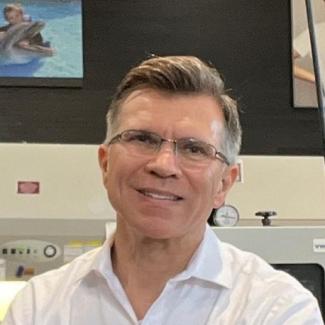
Dr. John Maris is Giulio D’Angio Professor of Pediatrics in the Perelman School of Medicine at the University of Pennsylvania and the Children’s Hospital of Philadelphia. He is a physician-scientist who has focused for over three decades on the childhood cancer neuroblastoma with the dual goals of improving patient outcomes and using the disease as a model to understand cancer in general. His group has discovered all the known neuroblastoma susceptibility genes and his group has also identified many of the oncogenic drivers of the disease. Dr. Maris has steadfastly sought to translate these discoveries to the clinic using precision medicine. Over the last decade he has led a multi-institutional St. Baldrick’s Foundation-Stand Up to Cancer Pediatric Cancer Dream Team project to bring the fields of genomics and immunology together to combat childhood cancers, and more recently a Beau Biden Moonshot Center Award to extend this rapidly evolving area of research. Dr. Maris is an internationally recognized practicing pediatric oncologist who cares for children with refractory neuroblastoma from around the world, typically in the context of early phase clinical trials. Dr. Maris has been continuously funded by the National Institutes of Health and many other funding bodies. He currently holds a National Cancer Institute Outstanding Investigator Award and has received several prestigious awards including election into the American Society of Clinical Investigation, the Oski award for outstanding pediatric oncologists, and the Berwick award at Penn for melding basic and clinical teaching, the William Osler Patient Oriented Research Award at Penn, and the AACR 2021 Team Science Award for his leadership in pediatric immunoncology research.
Organisation
The Children's Hospital of Philadelphia
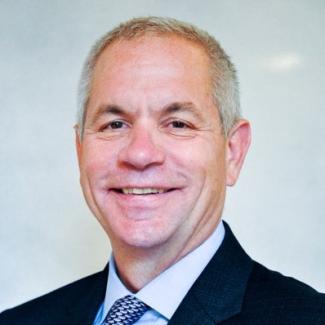
Sanford “Sandy” Simon, The Gunter Blobel Professor at The Rockefeller University, had focused his work on fundamental cell biology with an emphasis on studying single events from studies of single channels for translocating proteins across membranes (Cell 1991, 1992), for exporting filamentous phage (Science 1999), single proteins moving in the cell (Biophys J 1999), single vesicles fusing or endocytosing (JCB 1999, Cell 2008), the assembly of single viruses (Nature 2008, Nature Cell Bio 2011, eLife 2018).
Now he studies a single individual well-defined cancer fibrolamellar carcinoma (FLC). When his daughter was 12, she was diagnosed with FLC, a usually lethal liver cancer (Science 2014). He has identified the driver, the transcriptome, proteome to understand pathogenesis in a paediatric cancer (Science 2014, PNAS 2015, PNAS 2017, Cancer Discovery 2021) and is actively preparing therapeutics using drug-repurposing (Cancer Discovery 2021), antisense technology (Clinical Cancer Research 2023, Molecular Therapeutics 2023) and PROTACS. The lab is a cross-disciplinary mix of chemists, bioinformaticians, paediatric oncologists, paediatric surgeons, cell biologists, hepatologists and patients with FLC, who are working at the bench. Sandy is also a founder and chair of The Fibrolamellar Registry, an IRB-approved non-profit patient advocacy group that is an interface between the science and the patients.
Organisation
The Rockefeller University
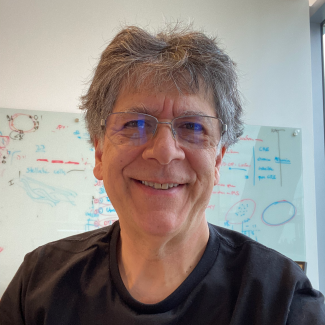
Dr Seychelle Vos is a biochemist and structural biologist who has made important contributions to our understanding of mammalian transcription elongation regulation. She is interested in defining how the transcription factor MYCN associates with the transcription elongation machinery and associated nucleic acids.
Seychelle is an Assistant Professor of Biology at MIT and a Howard Hughes Medical Institute Freeman Hrabowski Scholar. Her lab is broadly interested in understanding how gene expression and genome organisation are physically coupled.
Organisation
Massachusetts Institute of Technology
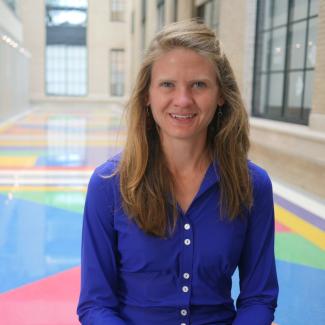
William A. Weiss is Professor of Neurology, Pediatrics, and Neurosurgery at the University of California San Francisco (UCSF), co-director of Clinical Child Neurology at Zuckerberg San Francisco General Hospital, and Co-Leader of the Pediatrics Malignancies Program at UCSF’s Helen Diller Family Comprehensive Cancer Center. William is an external advisor to Brain Tumor Programs at Saint Jude Children’s Research Hospital, and at Children’s National Hospital. William’s lab has developed genetically engineered and human pluripotent stem cell-based mouse models for glioma, medulloblastoma and neuroblastoma; establishing these as platforms for biology, genetics, and preclinical trials, in conjunction with analyses of primary human tumors. The lab has a long-standing interest in developmental therapeutics in neural cancers, focused on EGFR, PI3K, and mTOR biology; chemical genetic approaches to kinase function, targeting Myc, and translation control.
Organisation
University of California San Francisco
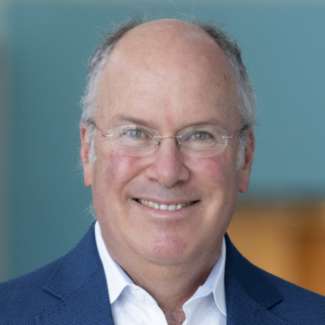
Georg Winter, PhD, performed his graduate studies at CeMM, working on elucidating the mechanism of action of cancer drugs. He specialized on proteomics- as well as chemical genetics approaches. He continued his training in chemical biology, working as a postdoctoral fellow with Dr. James Bradner the Dana Farber Cancer Institute. Supported by an EMBO fellowship, he published the first paper reporting on in vivo target protein degradation (Winter et al., Science 2015). He was recruited as a CeMM Principal Investigator in June 2016. Thematically, his lab works at the interface of chemical biology, cancer, and gene control. His group aims to innovate novel pharmacologic strategies that allow us to probe, understand and eventually disrupt aberrant transcriptional circuits in cancer. Dr. Winter’s research strategy is inspired and driven by high-throughput and unbiased technologies such as quantitative proteomics, (nascent) transcriptomics and functional genomics. Connecting these technologies with synthetic chemistry empowers the understanding of the mechanism of action of proteins, protein complexes or small molecules both on a holistic but also mechanistic level.
Dr. Winter’s research has led to the incorporation of C4 Therapeutics, moreover, he is a scientific co-founder of Proxygen and Solgate Therapeutics. His group is supported by several national and international grants and fellowships including an ERC Starting Grant and an Aspire Award from the Mark Foundation. Dr. Winter’s contributions to the field of targeted protein degradation were acknowledged via multiple prices and awards, including the Tetrahedron Young Investigator Award, the EFMC Prize for Young Chemical Biologist in Academia, the German Lectureship for Chemical Biology, the Wilson S. Stone Memorial Award from MD Anderson, the Eppendorf Award for European Scientists, and the Elisabeth Lutz Award of the Austrian Academy of Sciences.
Organisation
Austrian Academy of Sciences
